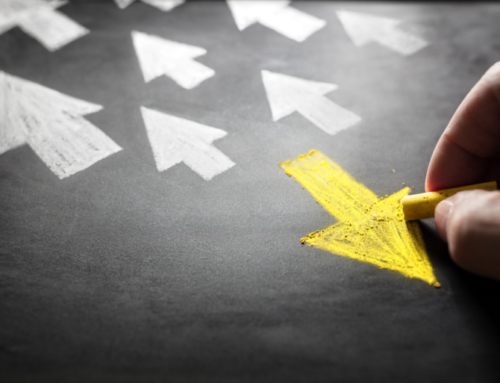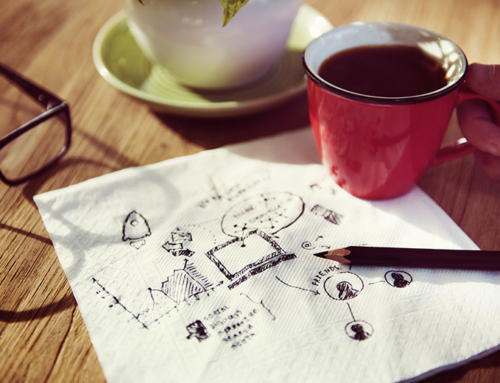Over all the years of my working with “patients,” my “patience” has been severely tested sooo many times. “Why can’t this person take my eminently sensible advice and just follow it?” I think. “It’s not rocket science. Just read my lips and follow the steps I so thoughtfully wrote out for you!”
Does this type of internal dialogue sound at all familiar? Please say Yes. If not, I’m more of a freak than I imagined.
You may already realize having read this far that I’m not being particularly politically correct in this post. But I think that harboring unsaid thoughts and unacknowledged feelings about our patients, individually and perhaps as a group of people, can lead to unhealthy outcomes for us clinicians and for our patients. For clinicians the outcomes can include frustration, resentment, cynicism, and, most direly, contempt for the people who need our help. For our patients the outcomes can include receiving care from a haughty, distant, or unempathic clinician; all of which can result in worse care and health outcomes for them. I don’t mean to imply that any of us walk around the live-long-day feeling disappointed, frustrated or acting out in untherapeutic ways. With two notable exceptions – I’ll tell you about them in a later post – I don’t think I ever acted out against my patients. Nevertheless, there were many times I was left confused and questioned my competence and appropriateness for the career I chose.
I believe that the route to a healthier career and greater engagement with our patients, and better outcomes for them, is to permit ourselves to examine our counter-transference reactions towards the people who come to get help from us. Only then can we be in a position to confront our challenges.
I think it’s ok that our patients are not like us and never will be. Is that good, bad, or neither? I choose neither – people are the way people are. Period. The same way as we need to speak to patients of different ages – children, teens, adults, elder adults – in developmentally appropriate ways, more broadly, we need to intervene in ways that will work for each individual person in treatment with us. To be blunt, many of the things we suggest or implement will just never happen. Whose fault is that? It just is. Fault seems like the wrong concept to call upon.
Let me outline the ways that patients likely differ from us. I divide these differences into two categories, trait and state. Trait-like differences between us and our patients include differing temperamental profiles. Temperamental selection pressure on successfully becoming a physician include ability to defer gratification, to maintain focus for extended periods of time, to remain organized and methodical, and to persevere despite great obstacles over many years. Other selection pressures for success in completing medical school and residency include the positive baggage of our inheritance, from genes and childhood environment. Most physicians have above average intelligence, and experienced better prenatal care and nutrition, more stable and healthier childhood environments, safer neighborhoods, better schools, better parenting, etc, etc etc.
Let me focus on one aspect of our “inheritance” that often separates us doctors from the people we treat: the concept of “allostatic load.” Recall that homeostasis means maintaining bodily functions within a narrow range of optimal values. Homeostatic mechanisms keep our body temperature, serum sodium levels, total body water, etc within a range compatible with life and adaptive function. Allostasis is a newer concept defined as maintaining stability within change in environmental demands. For example, when under threat our body achieves a new set point for blood pressure, heart rate, ventilatory volume, and mental focus. When a person lives under chronic stress conditions, the chronic elevation of the allostatic mediators, such as cortisol and norepinephrine / epinephrine levels, results in ‘wear and tear’ damage to the organism. This “life under duress” increases what is called allostatic load, and a chronically high allostatic load leads to many medical and psychiatric sequelae, including development of hypertension, metabolic syndrome, obesity, depression, anxiety disorders, and addiction.
Many of our patients have an inheritance of much higher and damaging allostatic loads. Poverty in and of itself increases risk for development of elevated biomarkers of allostatic load, and medical and psychiatric disorders. And that’s even before mentioning the stress of growing in a neighborhood where people are killed all around you, year after year. It’s almost beyond belief that in Chicago, my hometown and a beautiful, successful, cosmopolitan city, this last weekend 14 people were shot and 2 killed! The people living in these “warzone neighborhoods” are people that for many years were my patients. It’s bad enough when you face this kind of threat day-in-and-day-out as an adult. It’s much worse when this is your childhood reality.
When I think about how blessed I am and so is my family, and the gulf that exists between my lived experience and that of my patients’, it makes me want to cry – and not figuratively. It remains incomprehensible to me.
Earlier, I also mentioned the state factors, that is, the conditions under which many patients function currently and that are related to their current burden of medical and psychiatric conditions. When a person has an anxiety or depressive disorder for instance, their adaptive function is severely impaired. A person with a current psychiatric condition cannot maintain the flexibility to adapt to change, try new approaches, question their current strategies, etc. They are in survival mode.
This is how my patients differ from me. In this context, who am I to think badly of them?
Until next time,
Dr. Jack
LanguageBrief
Today’s Quotes
“People never change because they are under threat or under duress. Never. They change because they see something that makes their life seem valuable enough to start moving toward a life worth living.”
– Robert Downey Jr“We are threatened with suffering from three directions: from our body, which is doomed to decay…, from the external world which may rage against us with overwhelming and merciless force of destruction, and finally from our relations with other [people]… This last source is perhaps more painful to use than any other.”
– Sigmund Freud, Civilization and Its Discontents






Leave A Comment